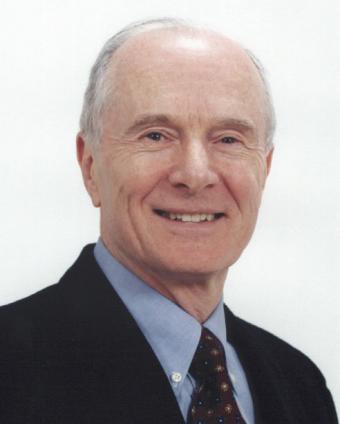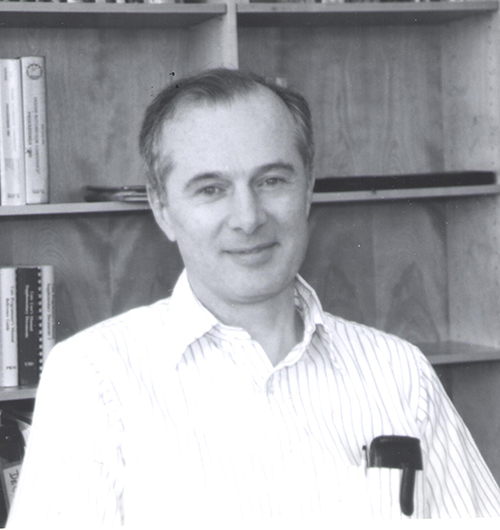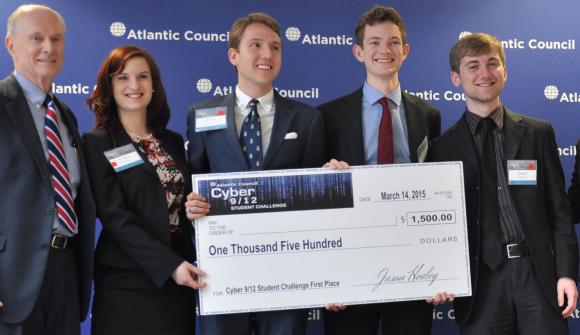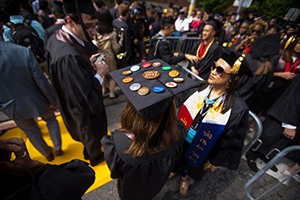
PROVIDENCE, R.I. [Brown University] — When computer science professor John Savage joined the Brown faculty in 1967, he assumed he’d stay at the University for two, maybe three years tops. He wound up sticking around a bit longer.
As part of this week’s Commencement and Reunion festivities, the Department of Computer Science is celebrating Savage’s 50th year at Brown. In place of its annual reunion, the department will host a series of talks reflecting Savage’s shifting research interests over the years and a reception to celebrate the longtime faculty member. The talks, to be held on Friday, May 26, from 2 to 6 p.m., will be live-streamed via the web.
At the time of Savage’s arrival at Brown, the computer science department did not yet exist — nor did Savage consider himself a computer scientist. He had a Ph.D. in electrical engineering from MIT and joined as an engineering professor. But his research interests led him toward computer science, and he quickly recognized the field’s burgeoning importance.

Along with fellow professors Andy van Dam and Peter Wegner, Savage was a co-founder of Brown’s first program in computer science, which would eventually become a department in 1979.
“John has had a tremendous role in shaping the culture and trajectory of the department,” said Ugur Cetintemel, chair of the department. “His dedication to the students, commitment to service and love of the discipline are inspiring. You can tell he truly enjoys his work and bravely follows his intellectual compass.”
That compass has led Savage through a range of different research areas over the years. He’s done foundational research in communication theory and theoretical computer science. He’s worked on parallel algorithms, scientific computing and computational nanotechnology. More recently he’s worked in the areas of cybersecurity, internet governance and other public policy issues. He served as a Jefferson Science Fellow in the U.S. State Department and is a Professorial Fellow of the EastWest Institute, an international affairs think tank.
Savage sees the evolution of his research interests — from deeply technical subjects in the computing field to issues in the public policy sphere — to be reflective of the evolution of the computer science field as a whole.
“I’ve seen computer science change its focus from being inward-facing and building tools, systems and infrastructure, to turning more outward-facing by contributing more and more to society in general,” he said. “I expect that will continue.”
Savage says the opportunity to take his research and teaching wherever his curiosity leads him is one of the main things that’s kept him at Brown. Another thing that keeps him going, he says, is the joy he gets from teaching and mentoring students.
“I’m the oldest of six siblings,” he said. “And probably because of that I tend to be concerned about the welfare of others. So I put a lot of time into looking after my advisees, students I encounter in courses and the teaching assistants I work with.”
José Castaños, a researcher at IBM’s Thomas J. Watson Research Center, received his Ph.D. from Brown in 2000 as one of Savage’s students. When he arrived at Brown, Castaños wasn’t exactly sure what he wanted to do. But Savage convinced the young scholar to pursue a Ph.D., and worked with him to develop a thesis project.
“He was always available to provide support when things were not coming up that well but also allowed independence to help me find my way,” Castaños said. “He provided high-level guidelines for my thesis, but let me develop it further so I never felt I was implementing someone else’s project. He was a great advisor, and we had a very close relationship during my years at Brown.”
Undergraduates whom Savage has taught and mentored echo that sentiment. Of late, Savage has been teaching classes in cybersecurity. And over the past few years he’s taken teams of undergraduates to the Cyber 9/12 Challenge, a cybersecurity policy competition sponsored by the Atlantic Council. Members of those teams have been grateful for the experience and for Savage’s tutelage.
“Professor Savage was the best mentor we could ask for, providing us with support and encouragement around the competition and taking a deep interest in our lives beyond Cyber 9/12,” said Sarah McNeil, a senior computer science concentrator and 2016 team member. “I will always be thankful for his kindness, wisdom and excitement about the world around him.”
Luke Camery, also a Brown senior, was a member of the 2015 team, which was the first all-undergraduate team to win the competition’s top prize. They defeated teams of mostly graduate students and policy professionals.
“John would wake up early with us and stay up late with us,” Camery recalls. “He would let us rehearse with him, give us pep talks after harsh feedback from the judges, encourage us when we were worried about facing opponents twice our age, and inject fun into the experience at every opportunity.”
Camery said that Savage’s students also appreciated his willingness to advocate for their futures.

“After we won the competition that year, John chatted up the vice president of Symantec who had given us the first place prize," Camery said. “Through John's networking, one of [the team members] actually worked for her that summer.”
Even after 50 years of teaching, mentorship and research at Brown, Savage still isn’t slowing down. He continues to teach and to advocate for the field computer science as a means of tackling pressing societal problems.
“I would like to offer an invitation to my colleagues at Brown to work with us in computer science in confronting issues in political science, international relations, economics and other domains,” he said. “There’s an opportunity for all of us to work together to address the problems we see nationally and internationally.”
Read more about Savage's 50 years at Brown on the Department of Computer Science website.
